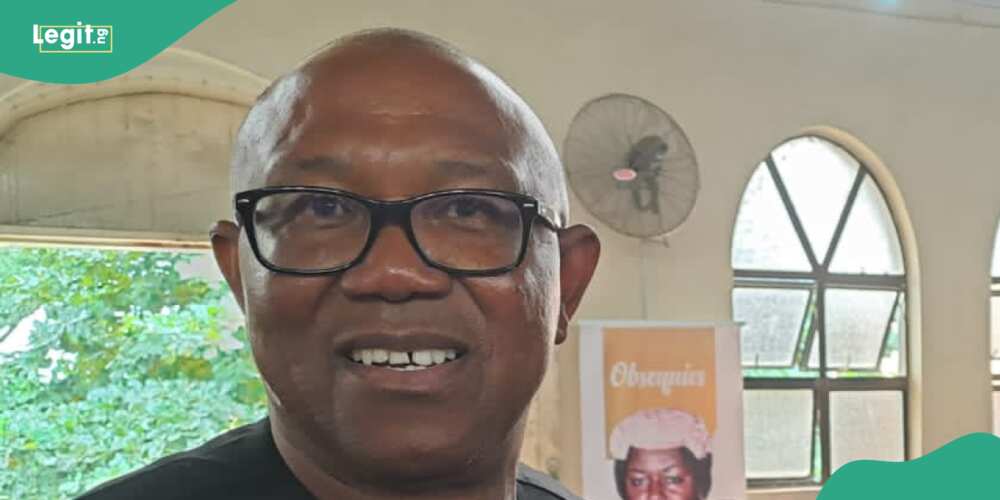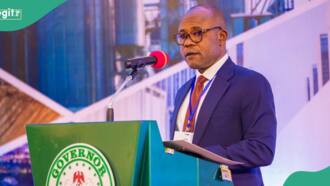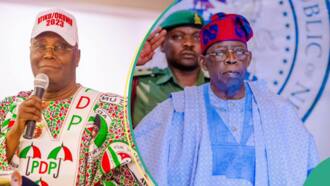ANALYSIS: 3 Steps Peter Obi Can Take if He Loses at Supreme Court
FCT, Abuja - The presidential candidate of the Labour Party (LP), Peter Obi, has disagreed with the rationale behind the judgement of the Presidential Election Petitions Court (PEPC).
Obi, a former governor of Anambra state, has a considerable number of social media supporters — 'Obidients', as they are known.

Source: Twitter
The presidential hopeful has filed 51 grounds of appeal before the Supreme Court seeking the nullification of the verdict of the trial court concerning the election of President Bola Ahmed Tinubu.
6,101,533 (25.4% of the total votes cast) Nigerians backed Obi, who came third in the presidential race in February.
The figure garnered is seen as a major achievement given the dominance of the ruling All Peoples Congress (APC) and the Peoples Democratic Party (PDP) since the end of military rule in 1999.
PAY ATTENTION: Сheck out news that is picked exactly for YOU ➡️ find the “Recommended for you” block on the home page and enjoy!
Obi’s grounds at Supreme Court
Obi and his party, while approaching the apex court with their appeal predicated on 51 grounds, alleged that the decision of the tribunal on September 6, was “perverse” in its entirety.
Obi and LP, in their notice of appeal filed in September, faulted the judgement of the tribunal for allegedly being against the weight of evidence.
The appellants, through their lead counsel, Livy Uzoukwu (SAN), told the apex court that “the learned Justices of the Court below erred in law and thereby reached a wrong conclusion when they found and held they did not in their petition specify the particular polling units where the alleged irregularities and malpractices occurred, or specify the figures of the votes or scores which they alleged have been suppressed, deflated or inflated.”
The petitioners submitted that the details of the polling units were contained in the spreadsheets and forensic analysis reports, which they had incorporated and made part of their pleadings.
On the issue of technology in the conduct of the 2023 general election, they submitted that the tribunal erroneously overlooked the fact that the use of technology in the conduct of the poll was pivotal to the credibility and transparency of the election.
They contended that contrary to the decision of the tribunal, the use of the Bimodal Voter Accreditation System (BVAS) to transmit the election results to the INEC Election Result Viewer (IReV) under the present legal rule of the Electoral Act 2022 was mandatory and not discretionary.
Supreme Court: Final arbiter of the law
In Nigeria, the judgement of the Supreme Court is final. The court is the highest tribunal in the nation for all cases and controversies arising under the constitution or the laws of the country.
As the final arbiter of the law, the court is charged with ensuring the Nigerian people are served justice.
Now, if the Supreme Court disappoints Obi, what are the options left for him? Legit.ng examines.
1) The dream remains alive
Obi, 62, is not considered to be among the old Nigerian politicians. The year 2023 was his first attempt, thus, he would most likely give the presidency a shot again in 2027 when he would have clocked 65.
It is noteworthy that on September 9, in one of his messages to 'Obidients', Obi said the dream his supporters share with him may have been deferred "but remains alive for all times". That is an indication that he is not giving up soon.
2) Call for further electoral reforms
The electoral system determines how representatives are selected. Considering the the innovations of the Independent National Electoral Commission (INEC) which a majority of Obi's supporters had banked on but eventually brought dismay, Obi could conscientiously call for further electoral reforms. Amendments like Nigerians in the diaspora being able to vote, and factors that affect the rate of voter participation.
Very likely, he'd have scored more than 6.1 million votes on a large voter turnout. Obi believed in the advantage of diaspora voting, hence the impetus for his promise in September 2022 that he'll implement the idea if elected.
3) Strengthen LP or go back to PDP
The LP has grown impressively, but Obi still has a job to strengthen the party if he hopes to become Nigeria's president via that platform.
Since 1999, the country’s presidency has rotated between two political parties, the PDP now in opposition, and the ruling APC. If he intends to stick with the LP, no doubt, he needs to consolidate on the last election's goodwill and work with the party's hierarchy to take LP to the next level -- especially in the core northern provinces. Otherwise, he can return to the PDP and challenge for the presidency. As of today, the PDP is still the main opposition party in Nigeria.
How to shatter Obi's challenge: Fasua
In a related article, Legit.ng reported that Tope Kolade Fasua, the special adviser to President Tinubu on economic affairs (vice-president’s office), said his principal can “torpedo” Obi’s challenge by showing Nigerians “proper renewed hope”.
As many Nigerians still express solidarity with his (Obi) ambition, Fasua has told Tinubu how he can defeat Obi again – in the event both men aim for the presidency in the next general election in 2027.
Source: Legit.ng





